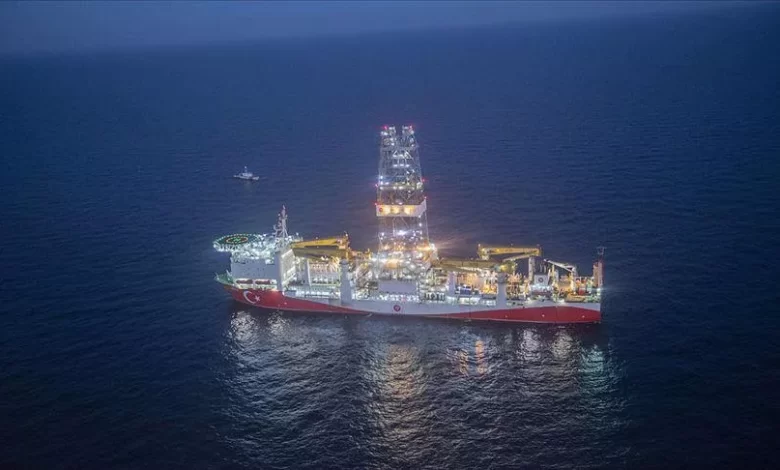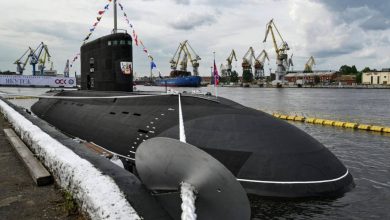Analysis: Five things to know about Sakarya, Türkiye’s biggest offshore gas field

In a remarkable feat, Türkiye has completed work on its Sakarya gas field in less than three years, with natural gas set to start flowing from the offshore wells in the Black Sea later this week.
Critics had raised doubts over the seriousness of the timeline announced by President Recep Tayyip Erdogan in August, 2020, when he declared that the project would be completed in 2023.
“Of course, this is a big achievement. Even if you are really quick, it normally takes four years for an offshore field like this one to be completed. We can say that Turkish Petroleum has completed the work really quickly,” says Mehmet Dogan, the Managing Director of the Istanbul-based GazDay Energy consultancy.
State-run Turkish Petroleum (TPAO) has developed several wells in the Sakarya field, located 175 kilometres from the coastal city of Eregli, in collaboration with Subsea7 and Schlumberger, two leading engineering firms.
Here are some important facts about the multibillion-dollar project.
How was it completed so quickly?
Sakarya is an ultra-deep field, which means drilling rigs have to hammer down thousands of metres below the seabed to reach the gas reserves.
Development of offshore petroleum finds is time consuming as it requires complicated engineering and multiple regulatory approvals.
For instance, gas from Sakarya will be delivered to land via a 170 kilometre-long subsea pipeline and then through various compression plants.
Generally, only oil majors such as ExxonMobil, Royal Dutch Shell and France’s TotalEnergies have the financial muscle to venture into deep seas to search for petroleum.
But after Türkiye was shunned by multinationals, Ankara decided to go its own way by acquiring drill ships — including the sixth-generation drilling vessel Fatih — in a bid to look for oil and gas reserves in the deep sea.
And the fact that TPAO eventually became the 100 percent owner of the Sakarya field explains how the development work was expedited.
Industry people say that private offshore petroleum companies often get bogged down with paperwork, bureaucratic hurdles and sale-purchase agreements. So, as a government entity, TPAO was able to considerably reduce the time that goes into negotiating complex pricing structures and lengthy sale agreements.
Why did Türkiye decide to do this on its own?
For decades, Türkiye depended on energy imports as there was a general belief among policymakers and the private sector that the geology of the country was not conducive to the formation of hydrocarbon reserves.
But successive discoveries made by regional countries such as Israel — coupled with Türkiye’s exclusion from the Eastern Mediterranean energy scene — pushed Ankara to expedite its own efforts.
In 2017, as per a new policy, Türkiye bought seismic and drilling ships to kickstart exploration in its territorial waters, and Ankara put three ships — Fatih, Yavuz and Kanuni — to work to begin looking for petroleum reserves in the Eastern Mediterranean and the Black Sea.
In the case of Sakarya, TPAO had worked in collaboration with firms such as Chevron and Petrobras in the past, but it began looking for oil and gas reserves in the Eastern Mediterranean and the Black Sea on its own because these companies were no longer interested.
For instance, in 2004, British Petroleum found some exploitable gas in a well called Ayazli-1 in the Black Sea, but abandoned further research and handed over the concession to TPAO.
The energy potential of the Black Sea and the Eastern Mediterranean, where Egypt found the massive Zohr Gas field in 2015, remains largely untapped, experts say.
How much gas will it produce?
Sakarya will be completed in phases. In the first phase, it will produce around 10 million cubic metres of gas per day. That amounts to nearly 10 percent of domestic summertime consumption and 4 to 5 percent of the country’s wintertime consumption as people turn on their heaters, says Dogan.
“In the second phase, which will be completed by 2027-28, production is expected to go up to 40 million cubic metres per day. That will probably meet 25 percent of Turkish consumption.”
Last year, Türkiye consumed 54 billion cubic metres (BCM) of gas, almost all of which was imported from Azerbaijan and Russia, among other countries.
Dogan says consumption has generally increased over the years with the construction of new residential buildings and economic expansion.
But last year’s gas intake was lower than the 60 BCM figure recorded in 2021. That’s because the share of hydropower in the energy mix was more in 2022 on the back of the availability of more water.
What’s the economic impact?
If measured using today’s gas prices as a gauge, gas from Sakarya translates into an economic gain of $5 million per day, says Dogan.
However, this figure can drastically increase if energy prices soar. The ongoing war in Ukraine and the failure of US banks have dampened the global economic outlook and cut oil and gas prices.
“If the natural gas price is crazy high like last year, then of course the benefit will be tremendous,” says Dogan.
Price plays an important role in determining the impact of Sakarya gas as Türkiye spent $80 billion on energy imports last year. A high energy bill dents Türkiye’s foreign exchange position.
But Dogan says perhaps the offshore field’s biggest benefit lies in its strategic nature.
Türkiye as a trading hub
In October last year, Russian President Vladimir Putin proposed that Türkiye be turned into an energy hub that connects consumer markets with production centres.
That put Türkiye’s geographical location in the spotlight as the country already serves as a transit route for major gas pipelines.
The presence of pipeline infrastructures in Türkiye such as the TurkStream in the Black Sea makes it easier for the country to export gas from its own fields.
Dogan says for a country to become a trading hub, it must have its own domestic gas production — something the Sakarya field provides.
“I am sure with this project, Türkiye will strengthen its position as an alternative supply route for Europe and the Balkan countries.”
Source: TRTWorld





